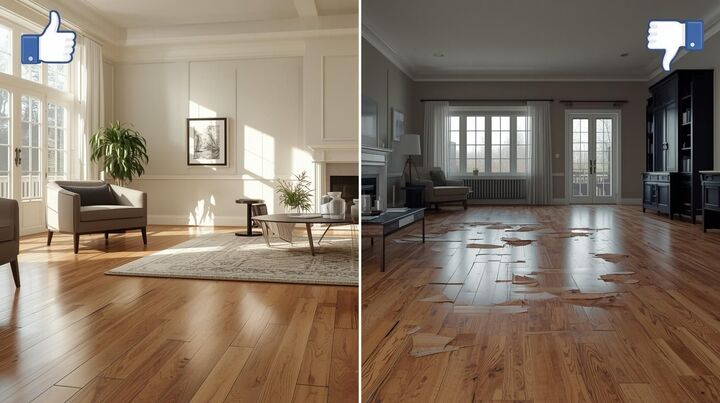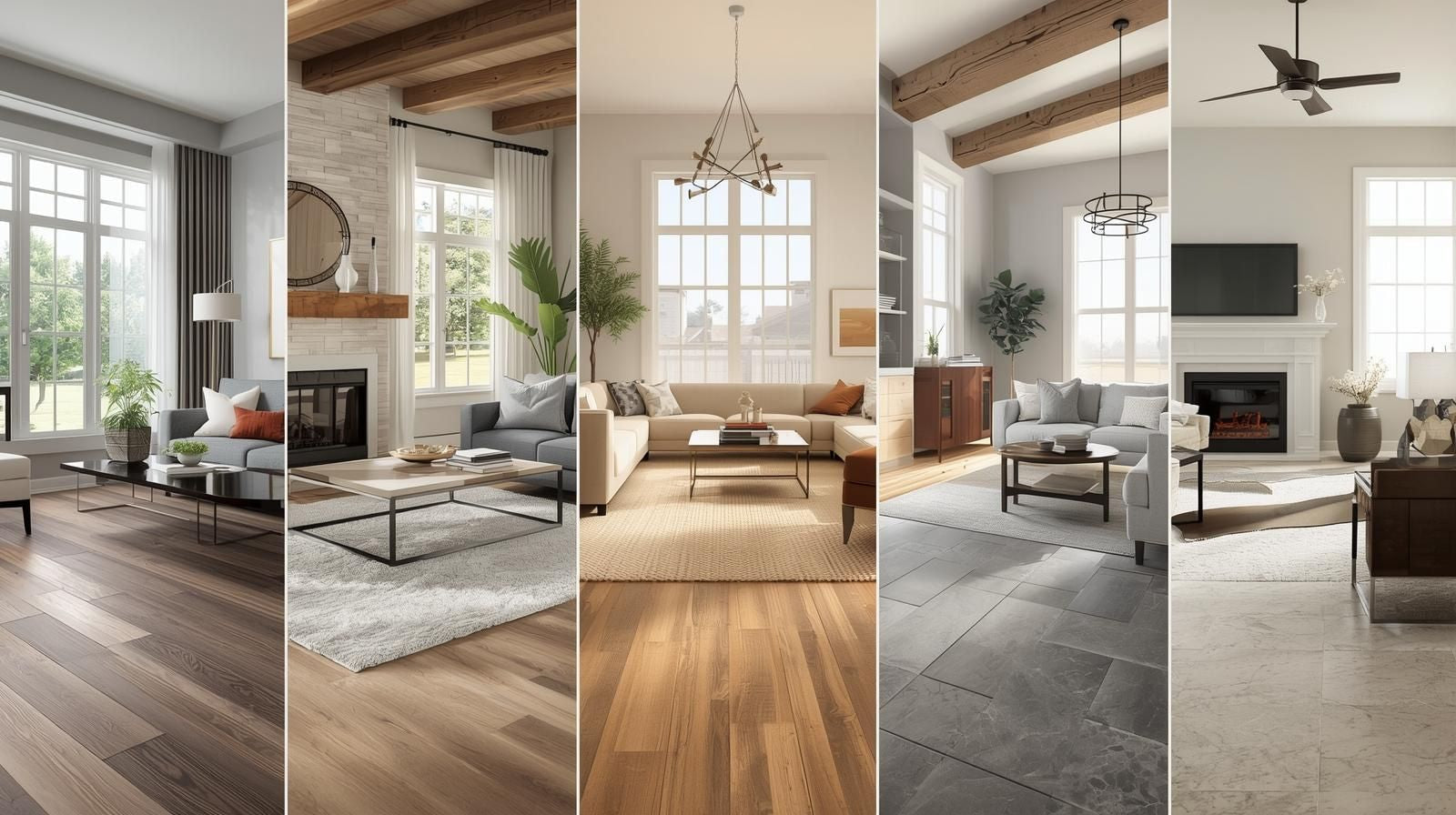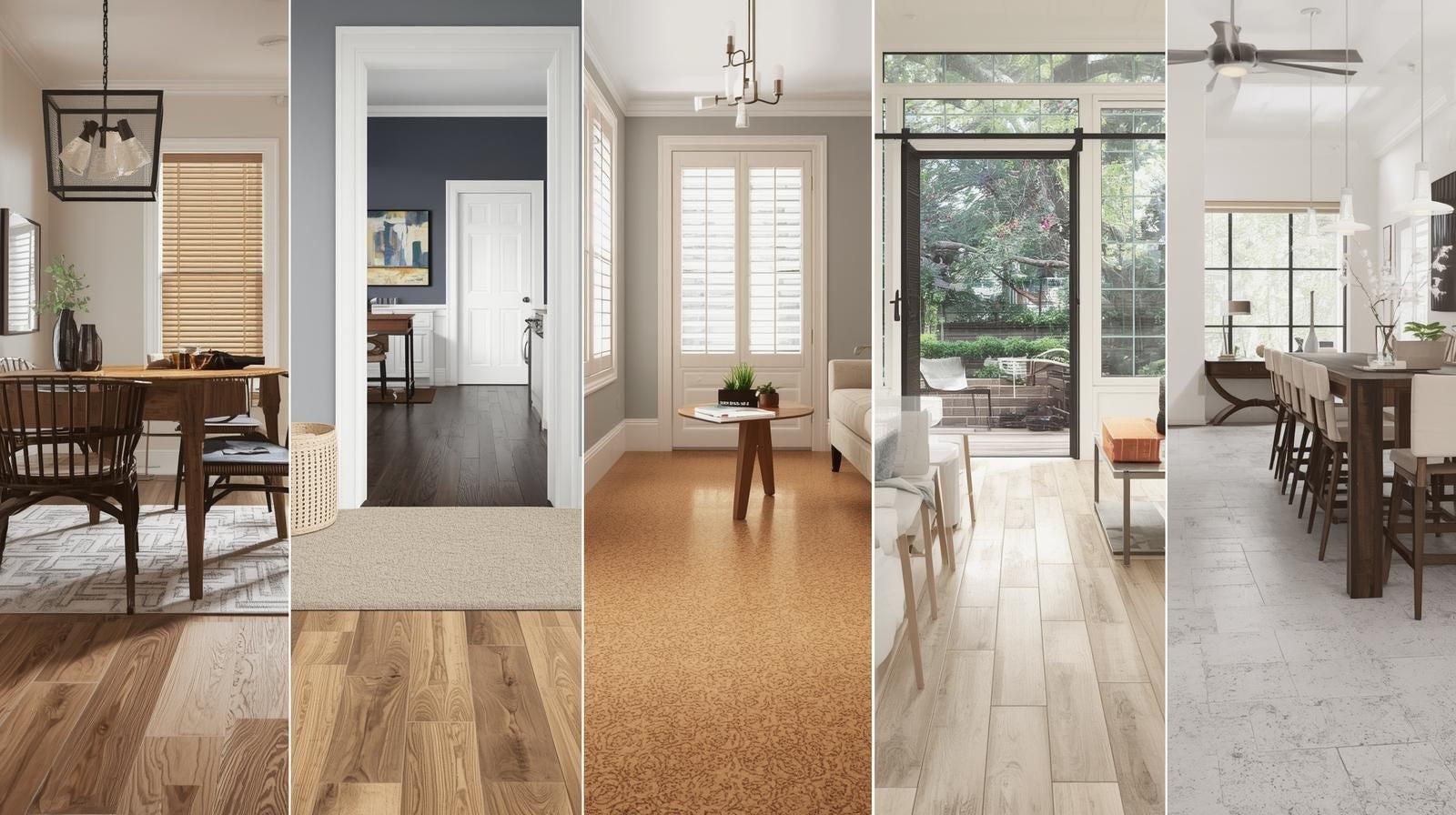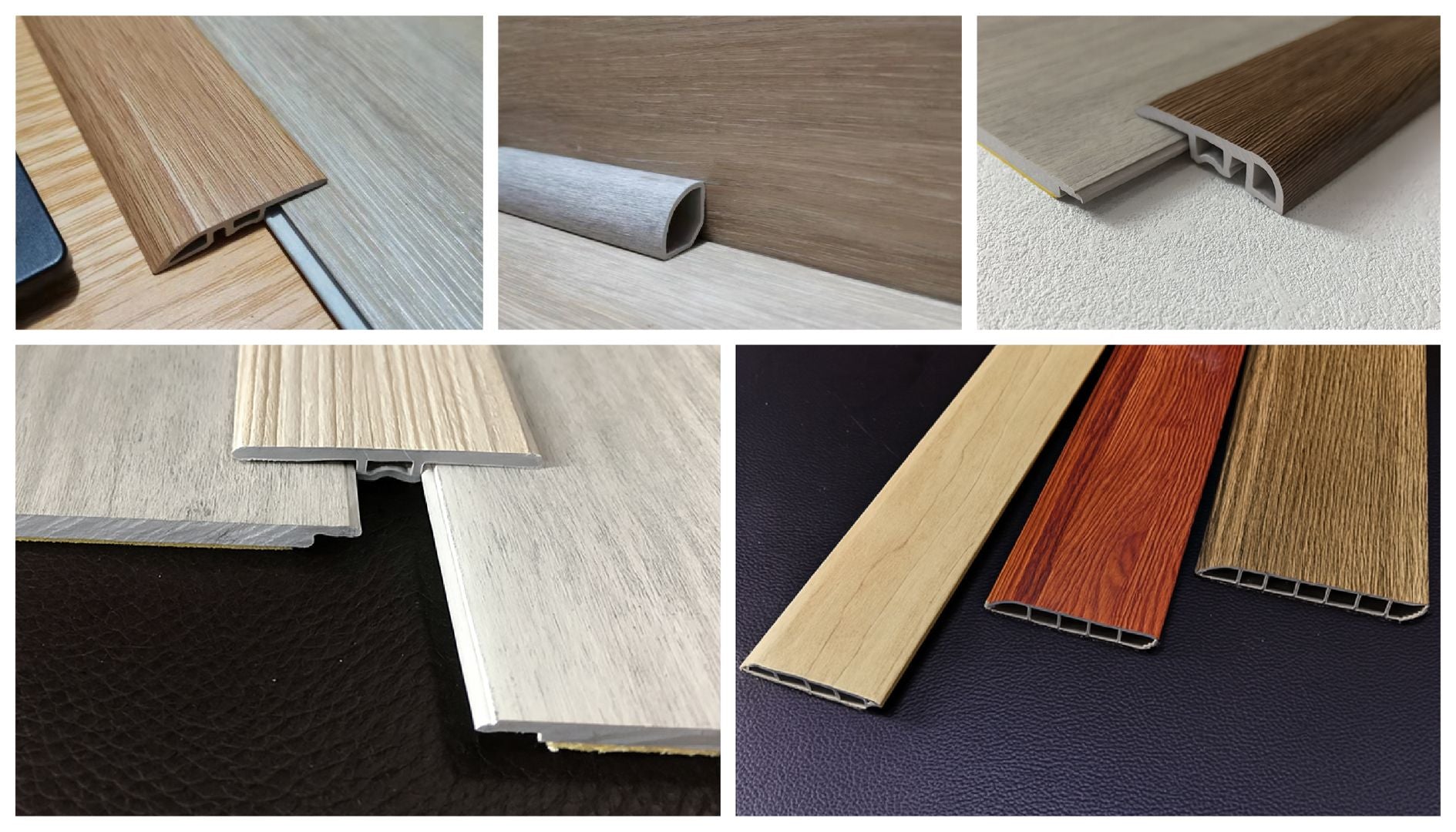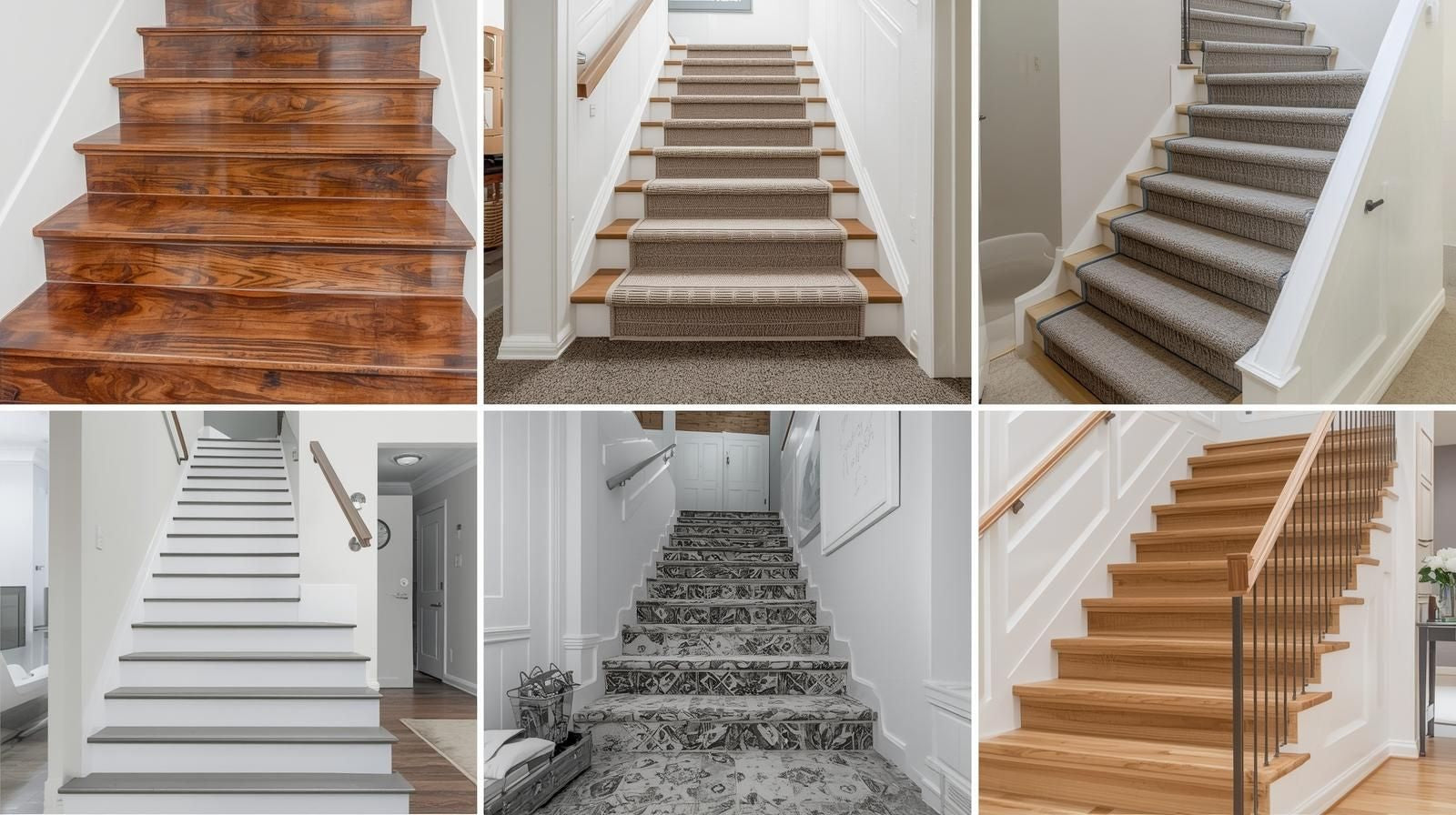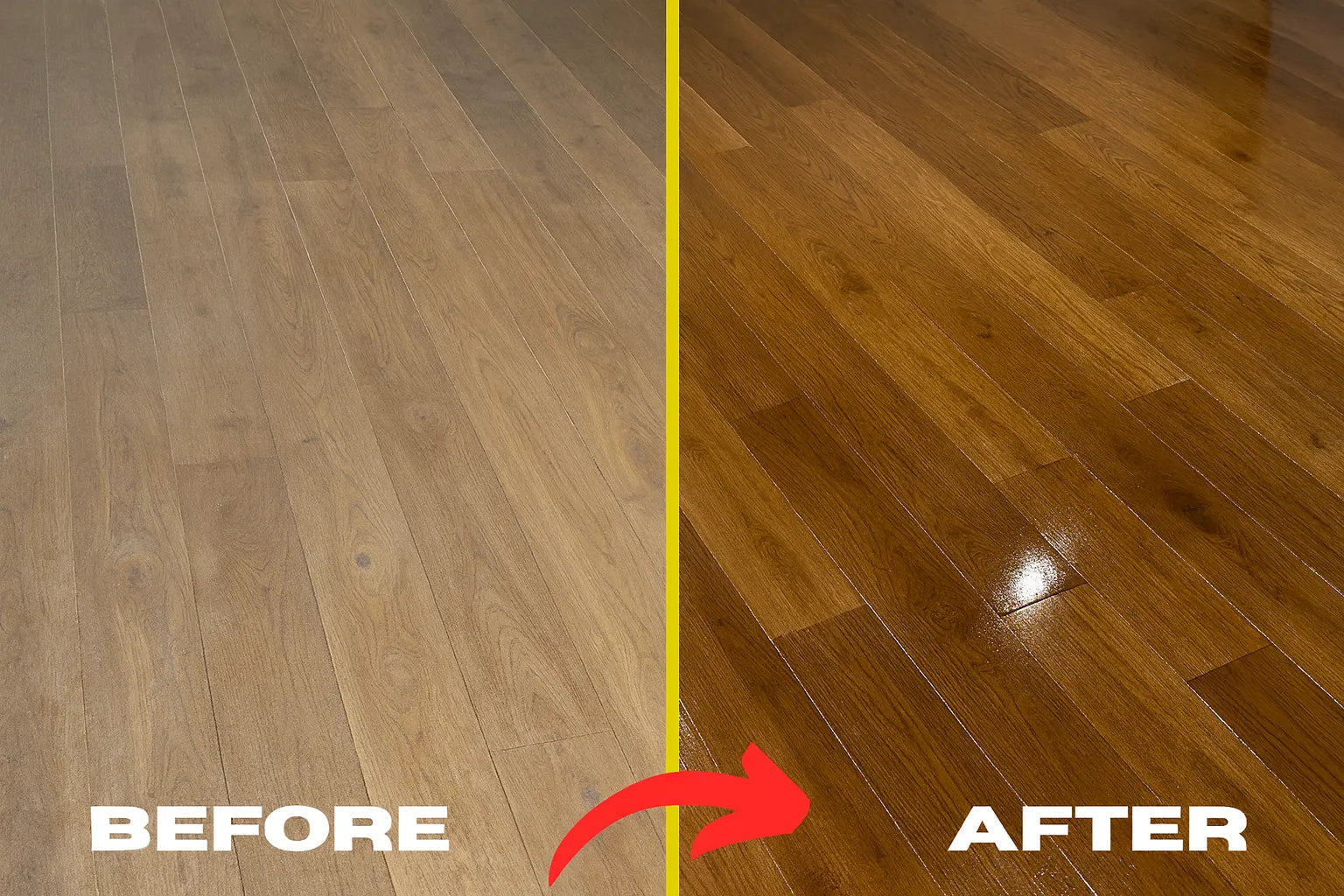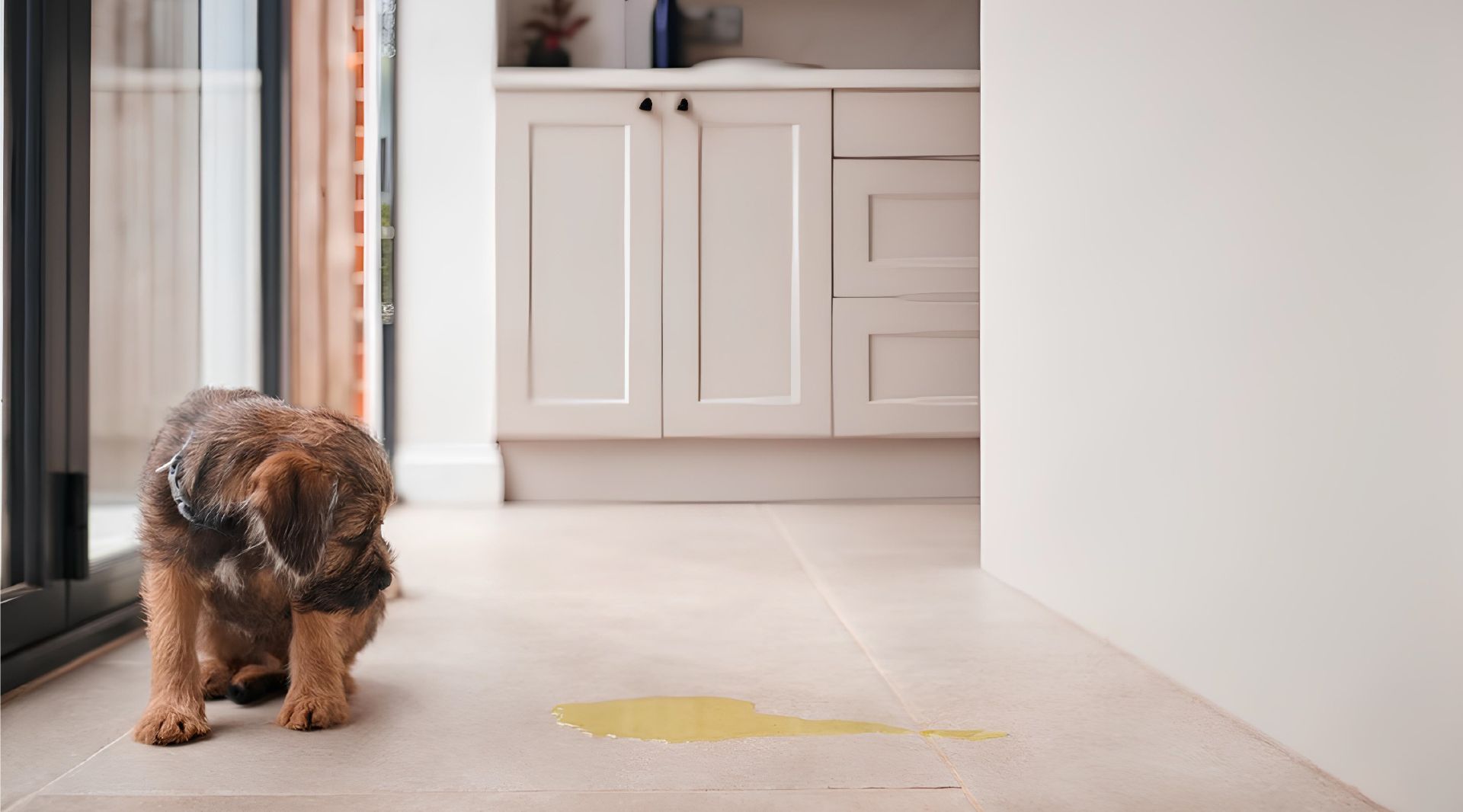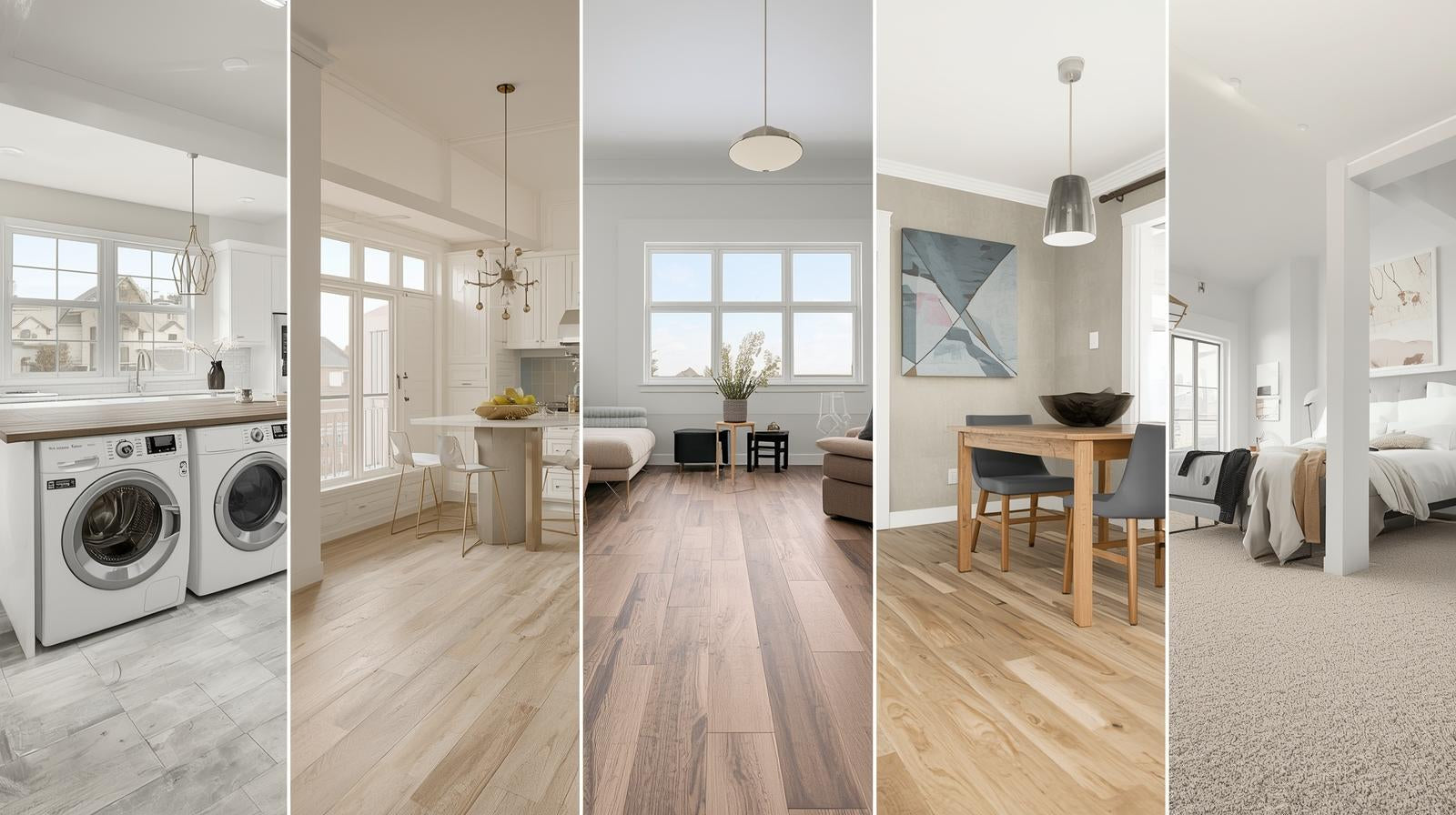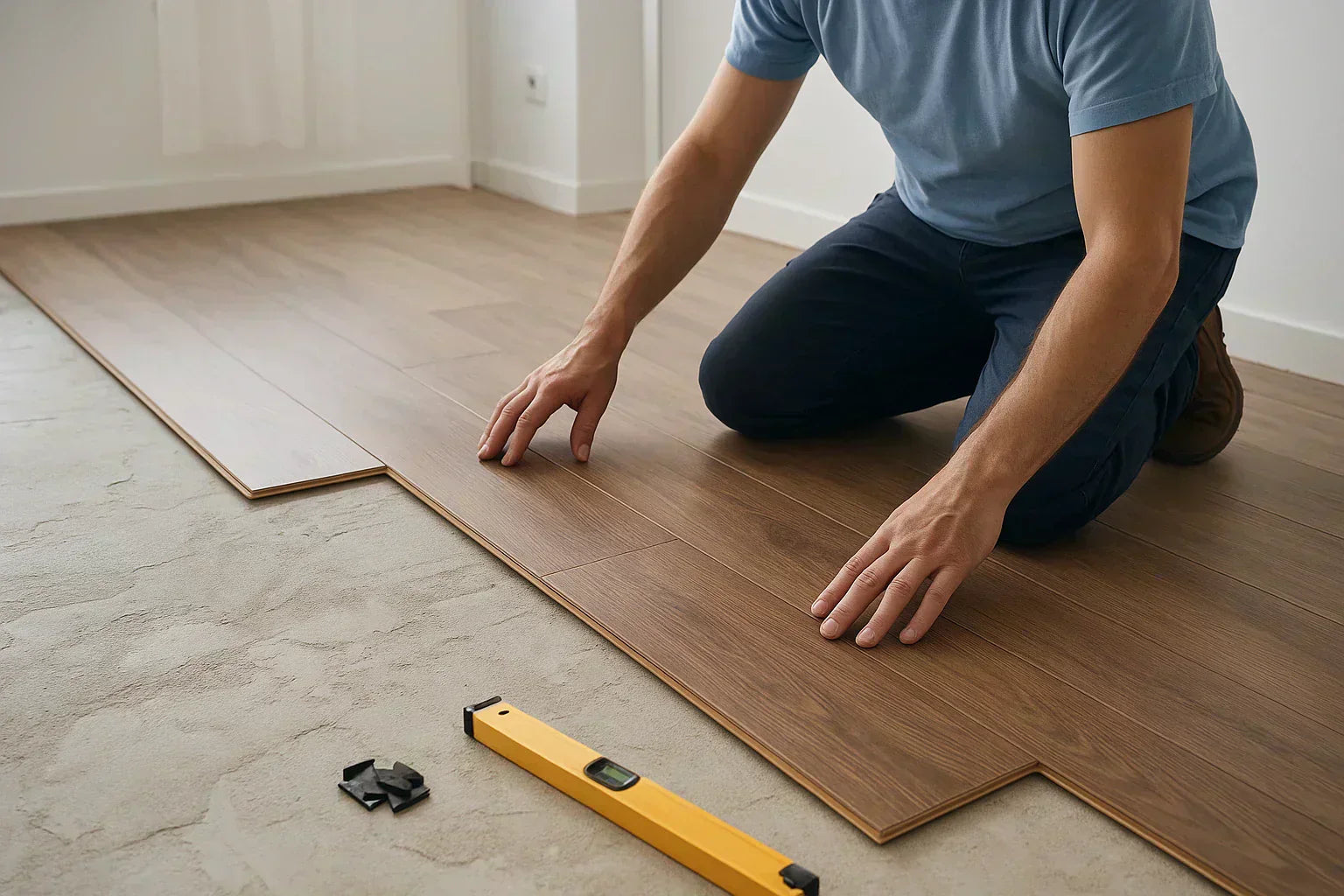Engineered hardwood flooring is a great alternative for those who like the aesthetic of real wood but need a more functional option. With a core of plywood layers and a hardwood surface, it provides the same nice look and feel of a traditional wood floor, but is more stable in extreme conditions of heat, cold, and humidity.
This look and combination of flexible design and durable construction is why it has become so popular in living rooms, bedrooms, and even basements in recent years. Like every other flooring option, it has its fair share of advantages and drawbacks, and that is completely reasonable.
So, is hardwood engineered flooring the perfect option for your home? Let's consider the advantages and downsides of engineered hardwood flooring to figure that out.
The Pros of Engineered Hardwood Flooring
Engineered hardwood flooring combines real wood beauty with added stability, making it durable, versatile, and suitable for more areas in your home.
a. Real Hardwood Beauty, Modern Engineering Stability

Engineered hardwood floors look like real hardwood and can withstand challenges better than real wood floors. Each plank has real wood veneers, which can be oak, maple, hickory, or walnut, and adds natural warmth and detail. Underneath the veneer is a stable, layered structure that helps the floor withstand and resist changes from humidity and temperature. It balances the classic style and the performance of modern technology.
b. Works Well in More Places in the House
Engineered hardwood provides even more versatility in the entire house with its ability to resist moisture and temperatures. Unlike solid wood, it can be used in basements, over concrete slabs, and with radiant heating systems.
c. Faster and Easier to Install
Engineered hardwood is usually prefinished, which helps reduce mess and time. It can be more easily installed and provides flexible installation with the ability to float, glue-down, or nail-down the floor. This is perfect for DIY projects or for renovations, as it helps reduce downtime.
d. More Affordable than Solid Wood
For less money than a solid hardwood floor, you can have engineered hardwood. It costs less because there is a thinner wood veneer placed on a hardwood stable core. It provides you with luxury styles like oak or walnut without trying to spend a lot.
e. Environmentally Friendly

In addition to using less solid wood, engineered hardwood often uses fast-growing wood for the core, which makes it more environmentally friendly. Many even use sustainably sourced wood for the veneer, along with low-waste manufacturing.
f. Easy to Care For & Longevity (When Properly Cared For)
A quality engineered hardwood floor can last for decades. It has a strong factory finish, which makes it resistant to wear and requires only dust cleaning with a soft wood safe cleaner to keep it looking fresh. This makes it less demanding.
The Cons of Engineered Hardwood Flooring
Engineered hardwood flooring has limits as it can’t be refinished many times, and poor-quality options may warp or delaminate over time.
a. Fewer Refinishing Options
If you want to refinish engineered hardwood, you can only do it a couple of times because of the thickness of the wear layer. This means that you won’t have as much flexibility compared to solid wood, as refinishing is a key part of solid wood.
b. Poor Quality Construction
Not all engineered hardwood should be treated the same. Those that have thin softwood cores, and cheap engineered hardwood, are more likely to warp or become delaminated, so be sure to look for long-lasting engineered hardwood that should be from reputable brands.
c. Sensitive to Standing Moisture
Even though “the lower” solid dark wood is more likely to warp, hardwood engineered wood is also not waterproof, and solid hardwood is also not moisture-resistant. Standing water or leaks can still cause costly hardwood water damage, so don’t put them in bathrooms or areas with a lot of moisture.
d. Quality Determines Price
Not every engineered hardwood is a cheaper option. As stated earlier, the more expensive engineered hardwood items contain quality wood cores, tough cores, and are priced the same or higher compared to solid hardwood. Buying cheaper engineered hardwood can also lead to poor savings.
e. Shorter Lifespan vs. Solid Hardwood (in Some Cases)
When properly cared for, solid hardwood can last well over a century and even last for generations. Whereas lower-grade engineered hardwoods can last about 20-30 years, and even with a higher-grade engineered hardwood, it can still last longer.
The difference is the ability to be refinished and the strength of the core. If you’re building a “forever home” or hope to pass down your space, then the difference in longevity may matter more to you. It’s not a deal breaker, but I think it’s a trade-off worth thinking about.
FAQs
Is engineered hardwood flooring worth it?
Yes. If you want the look and feel of real wood, but want greater installation flexibility (basement, over concrete, radiant heating) and potentially lower cost and fewer movement issues, then engineered hardwood flooring is very much worth it.
Can engineered wood be refinished?
Yes, but with limitations. The ability to refinish depends on the thickness of the top veneer.
Is engineered hardwood OK for kitchens and basements?
Yes, because engineered wood handles humidity and subfloor variability better than solid hardwood, it is often a more appropriate choice for basements or rooms with concrete slabs.
How do I clean and maintain engineered wood floors?
Cleaning of the engineered hardwood is similar to solid hardwood in many respects: Use area rugs or mats at entrances to trap grit & moisture. Clean regularly with a manufacturer-approved hardwood floor cleaner; avoid excessive water. When moving furniture or heavy items, lift rather than drag to avoid scratching the wear layer.
Conclusion: The Smart Choice for Style and Stability
In the end, it's about choosing engineered hardwood flooring from a trusted flooring store that really comes down to evaluating what suits you best among the design, cost, durability, the conditions under which it can be put down, upkeep, and the function of the room. If you look for:
- An authentic hardwood look with a real wood surface
- Flexible installation options like basements, concrete, and under radiant heating systems
- Good value for the price with engineered hardwood, as compared to premium solid hardwood
- An eco-friendly option
Then, you will be pleased with engineered hardwood flooring.
On the other hand, if you look for:
- Unlimited potential for refinishing
- “Timeless” value of a solid wood floor, which can last 100 years
- The ultimate quality you value for resale, legacy use, or sense of attachment
Then, solid hardwood may suit you best, or make sure your engineered choice is the highest quality.
Still trying to decide which option would work best for your space? Call us at (833) 378-4559, and we will help you find the right flooring for your home and your budget.


